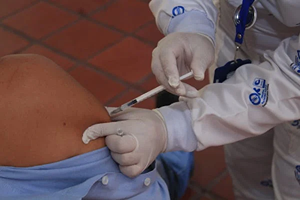Introduction
In the intricate world of healthcare, the dynamic between patients and professionals often raises a pivotal question: "Patients vs Professionals: Who Holds the Responsibility?" This query doesn’t just scratch the surface; it delves deep into ethical, moral, and practical realms. A patient’s health is a collaborative endeavor, where both parties play vital roles. So, where does accountability lie? Is it solely in the hands of medical professionals who wield their expertise, or do patients also bear some responsibility for their health outcomes?
This article aims to explore this multifaceted issue, dissecting various aspects from communication barriers to compliance with treatment plans. By diving deep into both perspectives, we hope to clarify some gray areas and provide insights that can foster better healthcare relationships.
Patients vs Professionals: Who Holds the Responsibility?
When contemplating responsibility in healthcare, it’s essential to understand who is accountable for what. On one hand, medical professionals carry the burden of providing accurate diagnoses and effective treatments. They’re trained to interpret symptoms and suggest interventions based on scientific evidence. On the other hand, patients are expected to actively participate in their care—this includes being honest about their symptoms and adhering to prescribed treatments.

The Role of Medical Professionals
Training and Expertise
Medical professionals undergo years of rigorous training. Their expertise is built on a foundation of knowledge acquired through education and clinical experience. As such, they hold significant responsibility in diagnosing conditions accurately and recommending appropriate treatments.
- Education Pathways: Medical school, residency programs, fellowships. Continuous Learning: Importance of staying updated with new research and techniques.
Communication Skills
Effective communication is key in any doctor-patient relationship. Healthcare providers must convey complex medical information in a way that patients can understand.
- Listening Skills: Understanding patient concerns. Clarity: Avoiding medical jargon when possible.
The Role of Patients
Active Participation in Care
Patients are not mere recipients of care; they should be active participants. This means asking questions, seeking clarification, and understanding their health conditions.
- Informed Decision-Making: The importance of knowing treatment options. Feedback Loop: Providing feedback helps improve care quality.
Adherence to Treatment Plans
Patients must follow through with prescribed treatment regimens to ensure optimal outcomes.
- Understanding Side Effects: Being aware of potential side effects encourages adherence. Follow-Up Appointments: Importance of regular check-ups for chronic conditions.
Shared Responsibility Model
Collaborative Approach
In today's healthcare landscape, a shared responsibility model is gaining traction. This approach emphasizes collaboration between patients and professionals.

- Partnerships in Health: Engaging patients as partners rather than passive recipients. Empowerment Through Education: Educating patients leads to better health outcomes.
Accountability Frameworks
Establishing clear expectations can enhance accountability on both sides.
| https://jsbin.com/ Aspect | Patient Responsibility | Professional Responsibility | |-----------------------|-------------------------------------|------------------------------------| | Communication | Ask questions | Provide clear explanations | | Adherence | Follow treatment plans | Ensure plans are realistic | | Lifestyle Choices | Maintain healthy habits | Offer lifestyle modification advice |
Barriers to Effective Collaboration
Socioeconomic Factors
Economic status can complicate patient participation in their care. Those with fewer resources may struggle to adhere due to financial constraints.
- Access to medications Transportation issues
Cultural Differences
Cultural backgrounds influence how individuals perceive healthcare responsibilities.
- Understanding diverse beliefs about illness Tailoring communication styles
Legal Perspectives on Responsibility
Informed Consent Doctrine
The legal principle of informed consent mandates that patients must understand what they are agreeing to before undergoing any procedure or treatment.
- Legal implications for neglecting informed consent.
Negligence Claims Against Professionals
When errors occur due to negligence or lack of proper care, professionals face legal repercussions.

- Malpractice suits Standards of care
Ethical Considerations in Healthcare Responsibilities
Principle of Autonomy
Respecting patient autonomy means acknowledging their right to make informed choices about their own health care.
- Empowerment through choice Balancing autonomy with professional guidance
Beneficence vs Non-Maleficence
Healthcare providers must navigate between doing good (beneficence) and avoiding harm (non-maleficence). How do these principles apply when patients refuse treatments?
The Impact of Technology on Responsibilities
Telehealth Services
With telemedicine becoming commonplace, how does this shift impact responsibilities?
- Ensuring accessibility Navigating technology barriers
FAQs About Patient and Professional Responsibilities
What are my rights as a patient?- Patients have rights such as informed consent, access to medical records, and the ability to ask questions about their care.
- Don’t hesitate to ask your doctor questions until you feel confident you understand your condition fully.
- Not adhering can lead to worsening health conditions or complications that might necessitate more aggressive treatments later.
- While they are responsible for providing care recommendations, ultimately adherence lies with the patient unless there’s an issue like inadequate explanation.
- Technologies like apps for tracking medication adherence or online portals for communicating with doctors dramatically enhance engagement.
- Mental health significantly affects a patient's ability or willingness to engage in their care plan effectively; addressing these issues is crucial.
Conclusion
Navigating the complex terrain of healthcare brings us back time and again to our initial question—who holds the responsibility? The answer isn’t black and white; it's undoubtedly a shared journey where both patients and professionals need each other’s input for success. By fostering open dialogue, enhancing communication skills, understanding cultural contexts, addressing socioeconomic barriers thoroughly—only then can we create a more meaningful partnership in healthcare that benefits everyone involved!
As we wrap up our exploration into “Patients vs Professionals: Who Holds the Responsibility?”, let’s remember that at its core lies trust—a trust that needs nurturing from both ends for successful health outcomes!